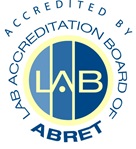In this section
Neurosciences
- Programs and services
- Conditions
- Tests and treatments
- Advanced neuroimaging
- Baclofen pump
- Diagnostic tests overview
- Electroencephalogram
- Endoscopic neurosurgery
- Epilepsy medication
- Epilepsy surgery
- Ketogenic diet
- Magnetic Resonance Imaging
- Minimally invasive neurosurgery
- Neurological examination
- PET MRI
- Spinal tap or lumbar puncture
- Stereoelectroencephalography
- Stereotactic laser ablation sla
- Vagus nerve stimulation VNS
- Research and innovation
- Patient care unit
- Locations
- Our specialists
- Neuroscience patient stories
- Ask a doctor
- For medical professionals
- Become a patient
Electroencephalogram (EEG) monitoring
What is an electroencephalogram?

An electroencephalogram (EEG) is a test that records the electrical activity in the brain. An EEG measures the electrical signals through small electrodes that are placed on yourchild's scalp. Approximately 2,000 patients received standard EEG evaluations for epilepsy each year at Children’s Wisconsin, and more than 1,000 receive long term video EEG monitoring and evaluation. Additionally, Children’s holds ABRET-EEG accreditation for EEG labs meeting technical standards and demonstrating quality output.
What steps should be taken to prepare my child for the EEG?
- Wash your child's hair the night before. Do not put any oil, gel, or hairspray on his/her hair. If your child's hair is long, do not braid or put it up. Please remove any hair extensions. We do not need to shave or clip the hair for an EEG.
- Give your child his/her medications as usual. Bring a list of all the medications (dose and schedule) your child takes to the EEG lab.
- Your child's physicians will give you instructions about when your child can eat before and after the procedure.
- On the day of the EEG, your child should not have any drinks containing caffeine such as caffeinated sodas, coffee, and tea as your child's physician will try to record EEG during periods of being awake and asleep.
- Your child must be sleepy for the test. Please do not let your child nap from the time he/she wakes up until the technologist performs the test. If your child does not reach the stage of sleep, your child's physician may decide to schedule another EEG test using a mild sedative.
Who does the EEG?
A neurophysiology technologist specifically trained to conduct EEG testing performs the test. At Children's, our Neurodiagnostic Technologists all have either completed an accredited neurodiagnostic program, or have achieved EEG registration as a Registered Electroencephalographic Technician (R.EEG.T) with the American Board of Registration of Electroencephalographic and Evoked Potential Technologists (ABRET). The majority of our Neurodiagnostic Technologist meet both of these requirements.
How is the EEG done?
Your child will be asked to lie down on a bed or stretcher. The technologist will explain the procedure to you and your child. The EEG technologist measures your child's head and makes small marks on the scalp with a washable marker or pen. Each marked area is rubbed with a gritty lotion so the electrodes will make good contact and record the electrical signals well. The electrodes are applied to each of the marked spots on the scalp and held in place with a sticky substance similar to glue. The electrodes are connected to the EEG machine and the test begins. Your child will need to sit or lie as still as possible. He/she may be asked to breathe fast (hyperventilate), look at flashing lights, and try to sleep. The test takes about one hour and your child is usually videotaped during the EEG. Your child's physician may order a “video EEG” to provide additional study time of the brain activity. The basic procedure is the same, but may last six to eight hours.
What happens after the EEG?
Once the test is complete, the electrodes will be removed and the sticky glue will be washed off with warm water and a washcloth. Sometimes, all the glue will not come off and you may need to wash your child's hair at home.
The technologist or nurse will give you further instructions and tell you when you and your child may leave.
Are there any risks involved with the procedure?
EEGs have been performed for decades and there is no evidence that there is any harm to the patient.
Who evaluates the EEG recordings?
A neurologist will read the EEG and then talk to your child's physician about the results.
Make an appointment
To make an appointment, call our Central Scheduling team or request an appointment online.
(877) 607-5280
Get a second opinion
It's important to know what your options are. We can provide expert opinions to verify or give more information about an initial diagnosis. Contact us today.
Need assistance?
From out of town? The Access Center can provide assistance in coordinating appointments, insurance, etc. Use our online form or call: (414) 266-6300.
